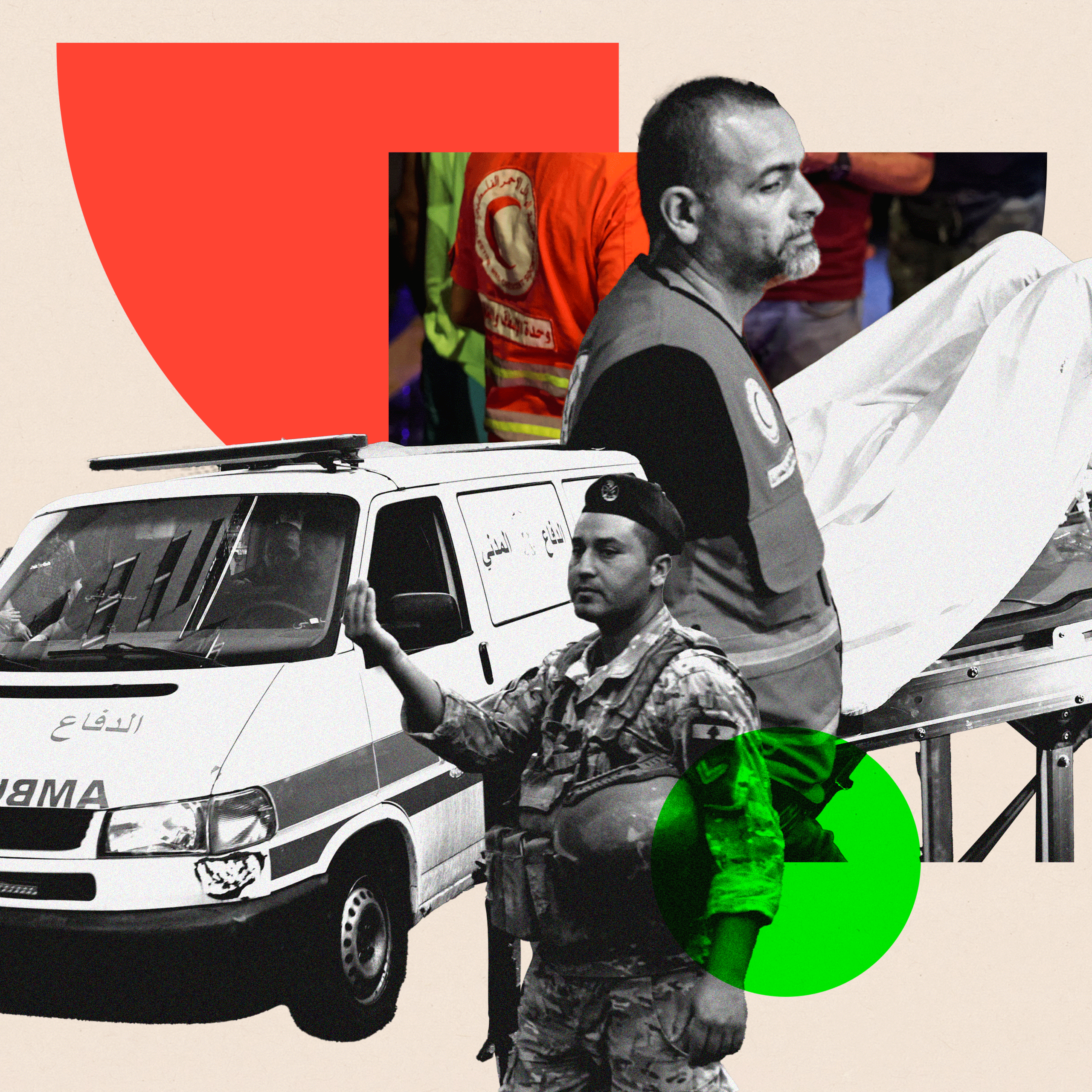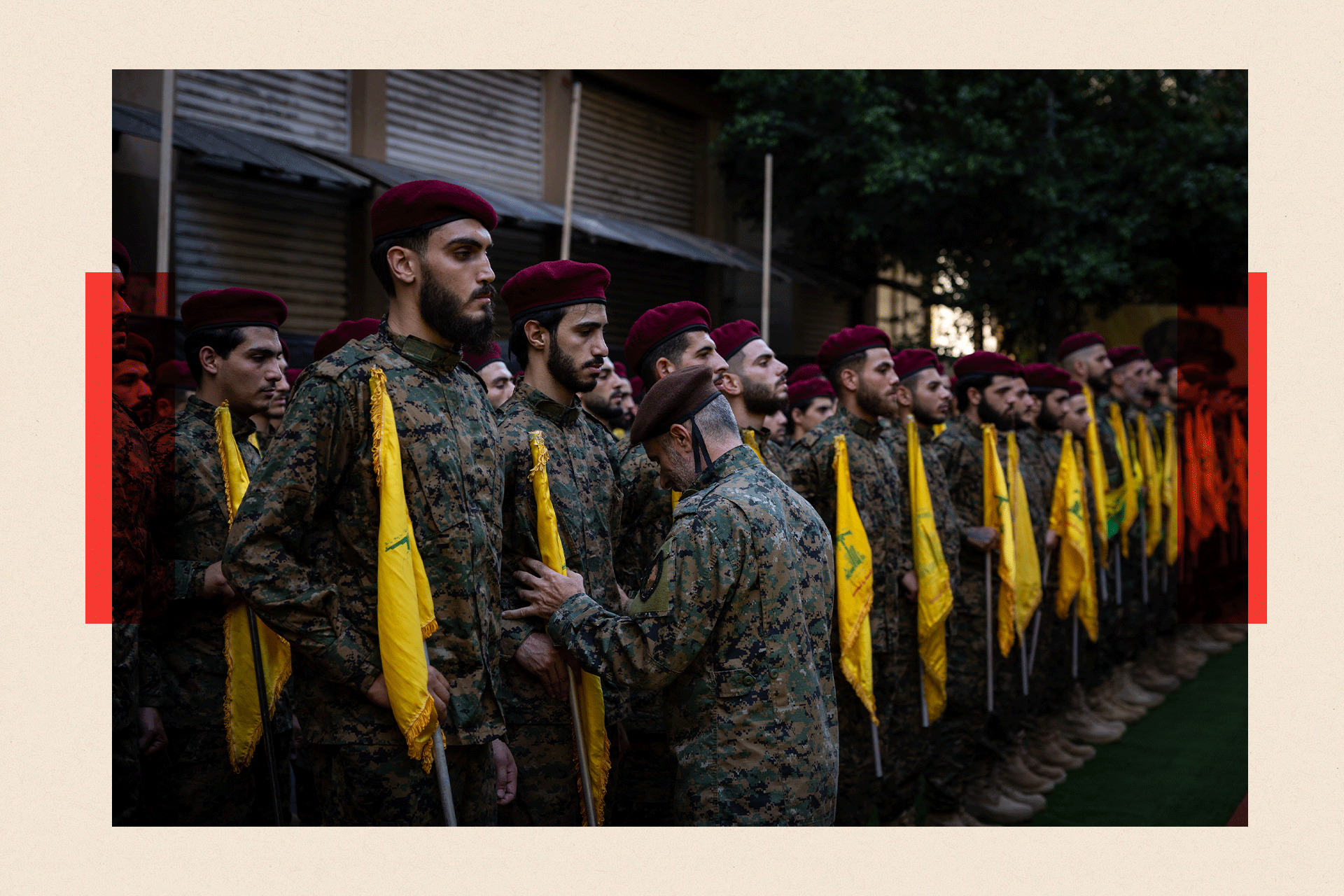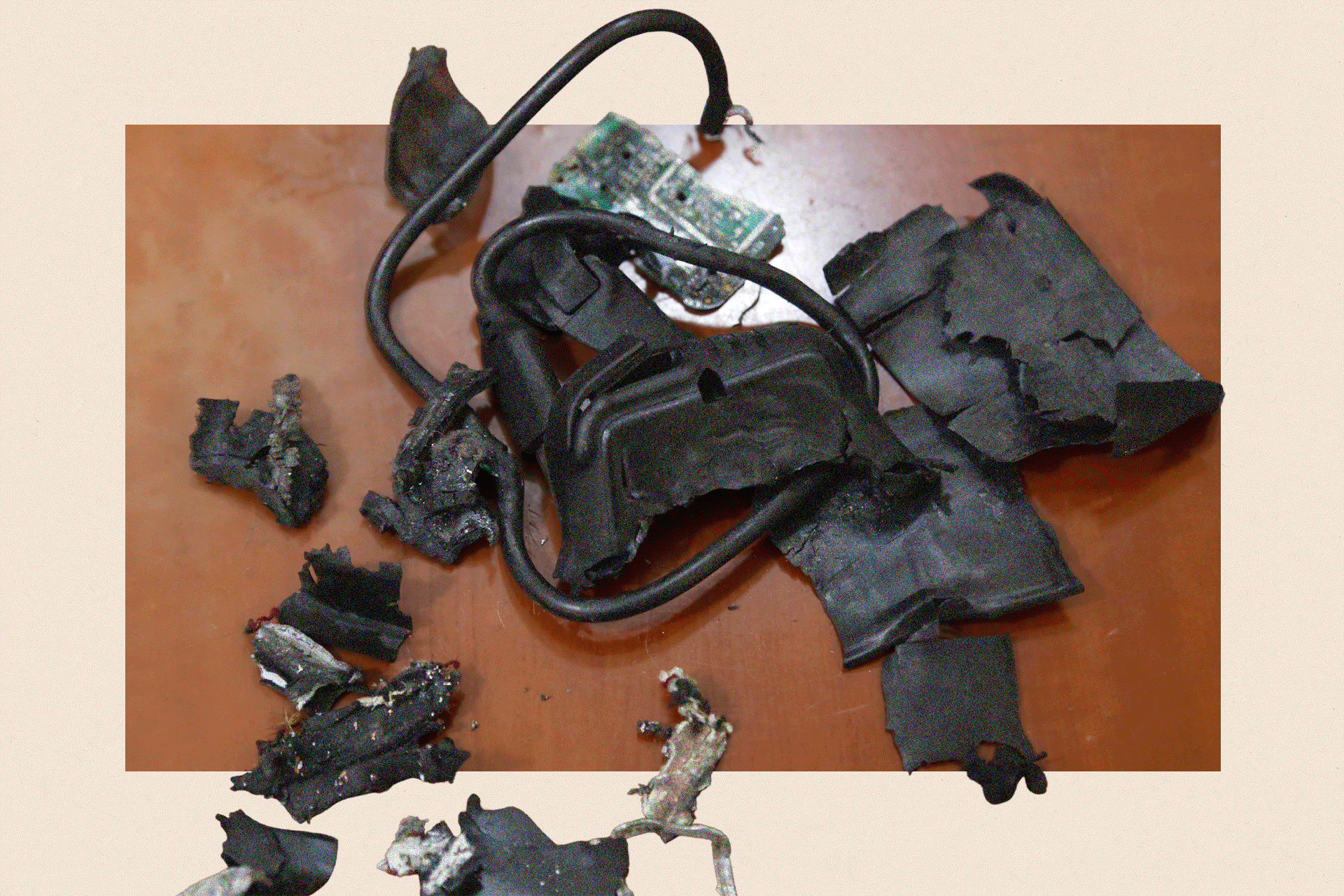
The war in Gaza always had the capacity to spread. Near-daily rocket attacks in and around northern Israel by Hezbollah, Hamas's Lebanese allies, and air strikes by Israel have displaced tens of thousands of civilians on either side of the border.
But until recently, the smart money was on both Israel and Hezbollah avoiding full escalation. That money isn't looking so smart today.
Last week's extraordinary targeting of thousands of Hezbollah operatives through their pagers and walkie-talkies seems to have altered the calculus.
Israel is believed to have been behind this attack - so why might it have carried out this operation, and why last week? What does it say about how modern wars are conducted? And what can we expect to happen in the weeks to come - how likely is a ground war between Israel and Hezbollah?
First of all, it’s important to understand exactly what Hezbollah is and where it comes from.
The group came into existence in the early 1980s after Israel occupied southern Lebanon during the Lebanese civil war.
At first Hezbollah presented itself as a resistance group against Israel and the voice of Lebanon’s Shia community, says Lina Khatib, director of the Middle East Institute at SOAS University of London.

The Briefing Room: Lebanon attacks
How do the attacks alter the equation in the Middle East? David Aaronovitch and guests discuss the recent events in Lebanon.

But when Israel withdrew from Lebanon in 2000, Hezbollah kept its weapons in violation of a UN resolution requiring it to disarm. It continued to present itself as a necessary force for the defence of Lebanon and “became the country's most powerful political actor”, says Prof Khatib.
Although it is represented in Lebanon’s government, Hezbollah’s real power lies behind the scenes, she adds - as an armed group that many analysts say is more powerful than the Lebanese army, it has the ability to intimidate its opponents.
“It is able to set the foreign policy agenda for Lebanon to a large extent, as well as declare war, basically, on behalf of Lebanon,” says Prof Khatib.
Hezbollah is also aligned with Iran - the group’s “principal armourer”, according to Shashank Joshi, The Economist's defence editor. “There isn't simply a sort of immediate direct command, but they are very, very closely tied in aims and in practices.”
The rubric that we're supposed to use when we discuss these attacks is that Israel is believed to have carried them out because Israel has not confirmed that it did so - a long-standing policy on the part of Israeli officials.
When operations take place in the occupied West Bank and Gaza, “they tend to put their hands up but they don’t when it’s Lebanon or Iran”, says Ronen Bergman, an Israeli investigative journalist with the New York Times.
However, the attacks are widely cited as having been carried out by Mossad, Israel’s foreign intelligence service.
Unlike other such agencies around the world, Mossad’s role is not just restricted to intelligence gathering, according to Bergman.
Mossad also sees it as its duty to “translate the intelligence it collects into what they call kinetic or aggressive or physical operations”, he says, including “explosives, sabotage, targeted killings”.
A week has now passed since the pager attacks. And the day after, the walkie-talkies were targeted too. So what do we know about these attacks?

Hezbollah claims that Israel was involved in the production of the pagers, but Israel have not accepted responsibility
According to Joshi, it looks to have been a supply-chain attack in which Mossad set up front companies that look to have manufactured real pagers for some time.
And when it came to this consignment bound for Hezbollah, it seems that Mossad placed explosives inside the devices that they were then subsequently able to remotely trigger.
In 2018, Bergman says, a young intelligence officer found out that Hezbollah had started using pagers and came up with the idea of Mossad infiltrating their supply chain. Some 4,500 booby-trapped devices were then supplied to Hezbollah, Bergman adds.
There are some accounts that suggest Mossad knew where these pagers were and who was in possession of them before detonating them. However, Joshi is sceptical of these claims.
He says, too, that “this was not some magical cyber-attack in which the batteries spontaneously combusted by some clever bit of code as people may initially have thought or suspected”.
CCTV footage of the pagers going off were broadcast around the world.
The images were shocking - and they also tell us a great deal about Hezbollah's organisation and structure, says Prof Khatib.
Typically, the group operates with a high degree of secrecy, she says: “Not all its members are known, sometimes even to their own families.”
What the attacks have done, then, is expose who paid members of Hezbollah actually were. That information, she says, has already proved useful to Israel.
In one case, “one of the people who ended up in hospital was later visited by someone, and that person as a visitor was later tracked by Israel, leading them to find out where the leaders of Hezbollah were meeting on the Friday that came after the attack”, Prof Khatib adds. Those commanders were later targeted by an Israeli strike, she adds.
To some the attacks will have looked like a new type of warfare. Joshi, however, is not so sure. “It’s always been possible if you wanted to put explosives inside a phone, a pager, inside a banana, if you feel like it. The point is to what end?”
He says the Americans had contemplated carrying out similar attacks in the past, but had shied away because of the potential implications.

Experts say the pagers and radios were likely rigged with explosives before they entered Hezbollah’s possession
After all, everybody now knows that Israel is capable of such an operation and can therefore take steps to prevent another one in future - taking apart devices and checking them for explosives, for instance.
As a result, he says, “my suggestion is that we're not going to see many attacks like this”.
The implication is that this was a one-off, use-it-or-lose-it situation - once you've carried out an operation like this, you can't do so again.
For this reason, Bergman says there are divisions within Israel’s hierarchy about whether this was the right time to do it.
“The timing of the attack is interesting,” says Bergman. “There are a lot of people in the defence establishment who are furious because they said this button was not supposed to be pushed here and now.”
All this raises the question of what Israel was thinking. Previously, many had thought that Israel was avoiding full-blown conflict with Hezbollah and didn't want war on two fronts while it was fighting in Gaza. The attacks might indicate that this calculation has changed.
But Bergman says it remains the case that most of the Israel Defence Force’s generals, including its chief of staff, oppose a ground invasion of Lebanon - conscious from their experience during the occupation in the 1980s and 90s that it could be a “death trap”.
He suggests that the aim was to force Hezbollah’s secretary general Hassan Nasrallah to agree to a ceasefire without Israel ending the war in Gaza.
Nasrallah has promised that he will not end his solidarity with Hamas until Israel ends its war in Gaza, says Bergman, while “Prime Minister Netanyahu, for his coalition integrity, doesn't want to end the war with Hamas”.
The calculation, then, was that the pager and walkie-talkie attacks would shift the balance, allowing the IDF to focus on Gaza. “Of course, the risk of this is that it will lead to the other way - it will lead, instead of a ceasefire and a political solution, to an all-out war,” says Bergman.
More from InDepth
Why do concert tickets now cost as much as a games console?
- Published23 September 2024
Amazon says workers must be in the office. The UK government disagrees. Who is right?
- Published22 September 2024
Labour insiders frustrated at Starmer's 'breathtaking' wardrobe row
- Published21 September 2024
Prof Khatib says it would be “completely foolish” of Israel to attempt a ground invasion of southern Lebanon - Hezbollah is well-prepared, with long experience of ground warfare.
But Joshi says it remains a risk. Recent air strikes against Hezbollah arms depots as well as the attacks themselves on the group’s leadership are “all the kinds of things you would need to be doing ahead of a major ground campaign inside Lebanon”.
That brings us to the question of whether Hezbollah's capacity has been so degraded in recent weeks and its confidence so undermined that actually it isn't in a position to fight an all-out war.
Joshi says that Hezbollah has taken a “battering”, having seen much of its leadership wiped out. “However, I think it would be a grave mistake to think it doesn't have considerable missile power at its disposal.”
The thousands of Hezbollah rockets aimed at Tel Aviv and Haifa and other Israeli towns and cities represent a major reason why Israel might not want to engage in an all-out war, as do the thousands of residents of northern Israel who have already been evacuated from their homes because of the cross-border fighting.
“The people who have remained are the people who probably don't have the means to flee,” says Prof Khatib. “But certainly things don't seem to be calming down anytime soon.”
Top Image: Getty Images
BBC InDepth is the new home on the website and app for the best analysis and expertise from our top journalists. Under a distinctive new brand, we’ll bring you fresh perspectives that challenge assumptions, and deep reporting on the biggest issues to help you make sense of a complex world. And we’ll be showcasing thought-provoking content from across BBC Sounds and iPlayer too. We’re starting small but thinking big, and we want to know what you think - you can send us your feedback by clicking on the button below.
Get in touch
InDepth is the home for the best analysis from across BBC News. Tell us what you think.

